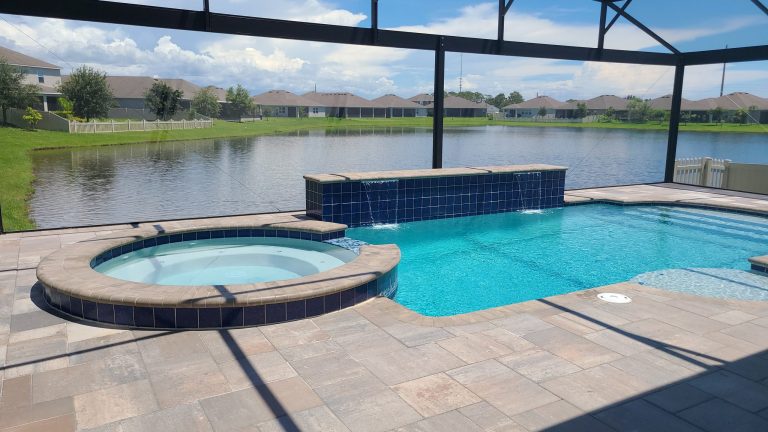Basic knowledge for pool care

We have created this space for you to learn a little more about the world of pools and everything you should consider if you are a pool owner or if you want to build a new pool at your home.
In this article, we will explain the basic knowledge for pool care, and will provide recommendations for safe and efficient operation.
Chemical balance and water disinfection
Firstly, we want you to learn about chemical balance and water disinfection, a vital aspect to maintain a healthy and suitable pool for use. Then, we will name the parameters that must be taken into account and what each of them refers to:
- pH: Signifies the hydrogen potential and indicates the acidity or alkalinity of the water. The optimal values are between 7.2 and 7.6, providing a safe and gentle pool for the skin
- Alkalinity: Is the water’s ability to neutralize acid, a value related to pH, and reacts to maintain it in the proper range. The recommended alkalinity ranges from 100 ppm to 150 ppm.
- Chlorine: This is a slow-dissolving, highly stabilized organic compound for treating and disinfecting pool water. In a pool, residual chlorine must be considered, which has already exerted its mechanism of action and is no longer useful for combating bacteria and microorganisms, and free chlorine, which is active in sanitizing water. The latter should measure between 0.5 and 2 ppm.
- Water hardness: Refers to the amount of calcium dissolved in the pool, which should be within the range of 175-300 ppm. It is ideal to maintain these levels to prevent the formation of calcareous deposits that can reduce water circulation.
- Chlorine stabilizer: UV light is the enemy of free chlorine in pools exposed to direct sunlight. Therefore, cyanuric acid should be used to stabilize free chlorine and reduce its loss.
Operating system
On the other hand, in the pool’s operating system, filtration and circulation are essential so that all the previously mentioned chemical products are distributed efficiently, and all sediment in the water are filtered. It is important to run the filtration system regularly, within a range of 6 to 8 hours, depending on the time of year, to avoid any accumulation and formation of algae. Additionally, regularly clean the skimmer baskets, which are the vacuum cleaners that collect superficial dirt from the pool.
Finally, it is ideal to perform periodic cleaning with leaf collectors, brushes, and vacuum cleaners.
At Dunota, you will find maintenance for all these processes in one place, from periodic cleaning to water treatment and repair of operating systems such as filters and pumps. We always recommend that maintenance be carried out by professionals, avoiding triggering major damage and providing more optimal and personalized service according to each pool’s needs, promoting safety in handling chemicals or electrical parts that can be a risk.
If you have any questions or concerns, do not hesitate to contact us. We want to be your allies in maintaining your pool so that you can always enjoy it to the fullest.
